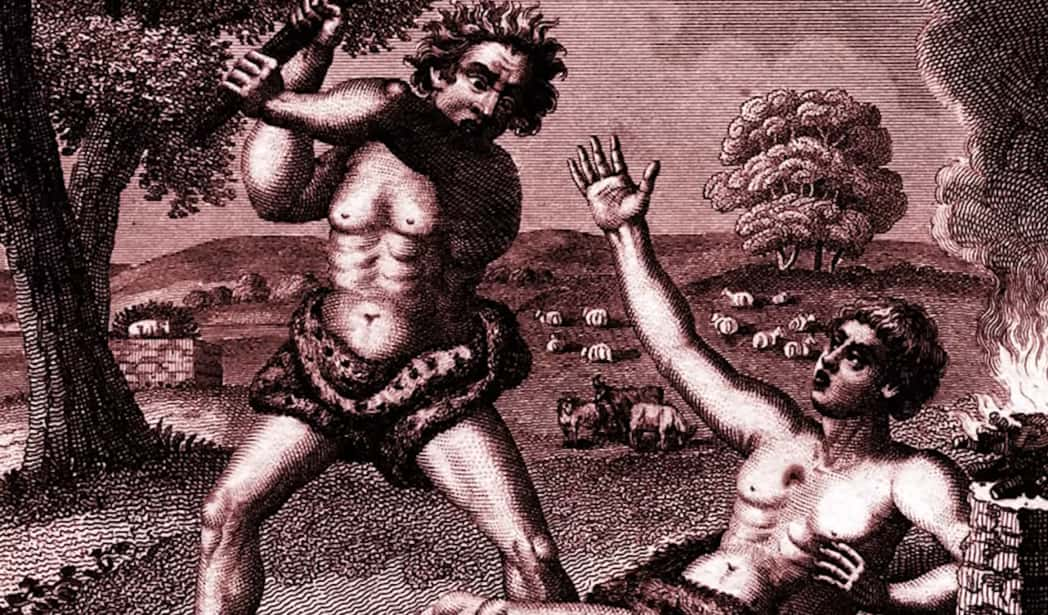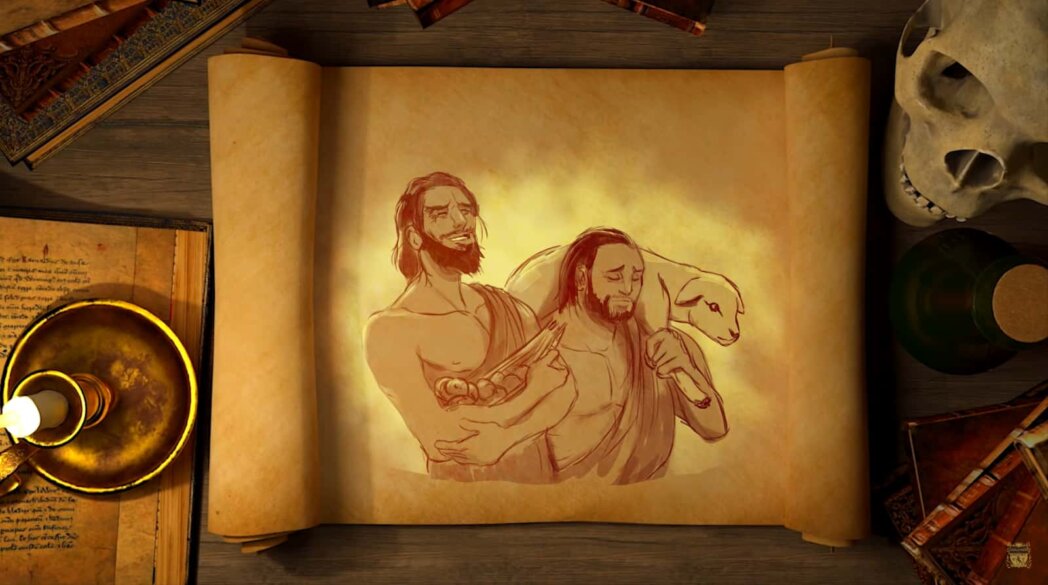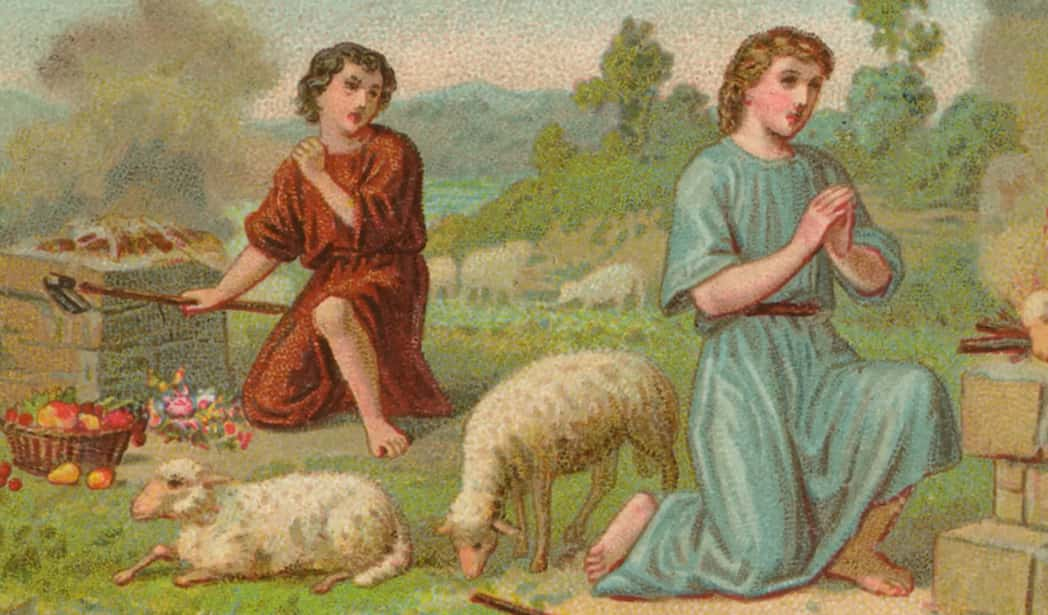In the narrative of the earliest human family, Cain and Abel emerge as Adam and Eve’s first offspring, each choosing different livelihoods—Cain cultivated the land, while Abel tended to flocks. Upon presenting their offerings to the divine, only Abel’s was favored, which incited Cain’s envy and resentment. These feelings festered, leading to the tragic end of Abel at Cain’s hand. This account serves as a timeless lesson against the corrosive nature of jealousy. Examining why Cain killed Abel offers insights into the destructive nature of jealousy and sin. Similarly, the inquiry about going to heaven with tattoos prompts reflection on the interplay between faith, personal choices, and religious beliefs.
Contrasting Offerings and Consequences
In the narrative of Genesis 4, Cain and Abel each presented sacrifices to God. Abel offered the finest from his flock, whereas Cain brought forth fruits from the ground. Despite their contrasting choices, God favored Abel’s offering while rejecting Cain’s. The subsequent turn of events reveals Cain’s destructive emotions as jealousy and anger drove him to commit the tragic act of murdering his brother, who had received divine approval for his sacrificial gesture.
Abel Presented the Finest from his Flock
Though the exact words spoken to Cain by God remain uncertain, the text does offer insight into His response to both Abel and his brother. Following the presentation of sacrifices by both siblings to God, “the LORD respected [Abel] but did not respect Cain and his offering” (Genesis 4:4). In simpler terms, God approved of Abel’s offering but disapproved of Cain’s.
The New Testament provides a parallel narrative explaining the reasons behind people offering gifts: “all who have been baptized into Christ have put on Christ … they were buried with him through baptism into death in order that, just as Christ was raised from the dead through the glory of the Father…so we too might live a new life” (Romans 6:3-5).
The message is unmistakable: when you offer your utmost, presenting your very self to God, you are embraced as His cherished son or daughter. Conversely, if you offer anything less than your best, including yourself, it is met with rejection.
The Nature of Cain’s Offering and Its Acceptance
Cain presented an offering of the earth’s produce. The rejection of Cain’s offering by God suggests it lacked certain qualities, in contrast to Abel’s, which was pleasing to God.
Abel Presented a Sacrifice of Acceptance

Abel’s offering was seen favorably by God, in contrast to Cain’s which failed to meet divine expectations. This difference hinged on the nature of the sacrifices each brother presented. According to the biblical instruction in Exodus 23:16, offerings should be made from one’s harvest and gatherings on the third day, a timing subject to various interpretations such as Saturday evening or Friday evening for Jewish tradition, or even Tuesday morning or Thursday afternoon.
The exact timeline following the creation week when Cain committed murder is unclear, but it’s evident that God’s guidelines for sacrifices were already established. The early chapters of Genesis suggest multiple instances where Cain and Abel could have engaged in worship before sin’s influence became evident.
Abel’s adherence to God’s precise instructions is what made his sacrifice acceptable. It’s uncertain if Cain was aware of the importance of the ‘third day,’ and even if he was, knowledge alone doesn’t equate to fulfilling God’s commands correctly in every similar situation thereafter. Abel’s success lay in his perfect compliance with God’s directives, whereas Cain’s understanding and execution were evidently lacking.
Divine Disapproval: God’s Rejection of Cain’s Offering
God’s rejection of Cain’s sacrifice stemmed from its inadequacy as the right kind of offering, unlike Abel’s acceptable presentation. The discernment of God’s acceptance is evident in Scripture, with Genesis 4:3 specifically stating that God favored Abel’s sacrifice while disregarding Cain’s. This distinction emphasizes the importance of understanding what pleases God versus what does not, aligning with the broader biblical principle that our faith should set us apart from worldly practices (1 John 2:15-17). Living in a manner distinct from unbelievers becomes crucial for our prayers to find favor with God.
- Abel’s offering emitted a pleasing fragrance to God, while Cain’s did not meet divine approval. Although the exact words exchanged between God and Cain are undisclosed, the subsequent verse (Genesis 4:7) implies God’s displeasure and Cain’s resulting anger;
- The consequences of Cain’s sin extended beyond his personal retribution, as the ground itself faced a curse (Genesis 4:12). Importantly, the inadequacy of Cain’s sacrifice is underscored, suggesting that Abel’s offering might have been an expression of gratitude or praise for God’s blessings;
- Although the Bible doesn’t detail Abel’s sacrifice, it mentions his presentation of an animal as a bloodless offering (Genesis 4:4).
In C. John Collins’s work, “The Gospel in Genesis,” an intriguing perspective is presented: Cain’s jealousy over the disparity in their offerings could have fueled his violent reaction, with Abel’s very existence being perceived as a threat by Cain.
Envy Unveiled: Cain’s Jealousy Over God’s Favor
In Genesis 4:1-8, the narrative unfolds as both Cain and Abel present offerings to God. While God accepts Abel’s sacrifice, Cain’s offering is met with rejection, leading to a surge of anger and jealousy within him. The source of Cain’s resentment stems from God’s preference for Abel, evident in the closer relationship the latter enjoys with the Lord: “But for Cain and his offering, He had no regard” (Genesis 4:5). Examining Genesis 3:21, where “God made garments of skin for Adam and his wife,” prompts consideration that the skins, possibly derived from animal sacrifices offered by Adam or Eve after their expulsion from Eden, could have formed the clothing in the Garden. This implies that both Adam and Eve, before their expulsion, and their post-Eden descendants could participate in sacrificial offerings in accordance with biblical law (Leviticus 17).
The Lurking Menace of Sin
God’s warning to Cain in Genesis 4:7 serves as a profound declaration: “Sin is crouching at the door. Its desire is for you, but you must master it.” This vivid imagery suggests that sin was positioned just outside Cain’s abode, eagerly awaiting an opportunity to inflict harm. Despite the apparent expectation for Cain to resist succumbing to a primal, animalistic urge leading to Abel’s murder, he underestimated the formidable strength of sin.
The narrative underscores the human tendency to make unwise choices when confronted with weakness in both mind and body. Cain’s tragic actions reveal the pervasive nature of sin’s allure, catching individuals off guard with its potent influence. Notably, God’s response wasn’t punitive due to a direct offense against Him, but rather a consequence of Cain succumbing to the destructive forces of greed and envy, rather than acting out of love for his brother Abel.
What Motivated Cain to Take His Brother’s Life?
Cain’s jealousy toward Abel arose from the perception that God favored his brother more. In his resentment, Cain attempted to murder Abel. However, God intervened, warning Cain that the act of killing carries consequences. Despite this admonition, the following day saw Cain committing the same heinous act, but this time, there was no escape. God’s punishment came swiftly, banishing Cain to a distant place, ensuring his isolation from others to prevent any further harm or danger to him.

Cain’s Refusal to Admit
When God questioned Cain about Abel, he didn’t outright deny his actions; instead, he inquired about his brother’s whereabouts. This implies that Cain was fully aware of his deed and anticipated being held accountable by God. The passage suggests a nuanced belief on Cain’s part – while he acknowledged the existence of God, it hints at a selective acceptance of God’s word and commandment against killing. It’s noteworthy that individuals who reject the authority of Scripture often assert that such commandments never existed, adding a layer of complexity to Cain’s mindset.
The Sinful Roots of Jealousy
According to the Bible, the admonition is clear: “Be not envious one of another, brethren, for envy is a sin” (James 4:1). The scripture further advises us to exercise restraint and be slow to anger.
The implication is that jealousy, when unchecked, can evolve into the sins of envy and anger. Considering this, it becomes crucial to reflect on whether jealousy is truly beneficial or if it might be inflicting more harm than good upon us.
Conclusion
This narrative holds immense significance, serving as a stark reminder of how sin has the power to devastate our lives. Cain’s act of murdering his brother, driven by jealousy, resulted in a profound tragedy. It underscores the imperative of resisting the destructive influence of jealousy and highlights the importance of guarding against its detrimental impact on our lives.


No Responses